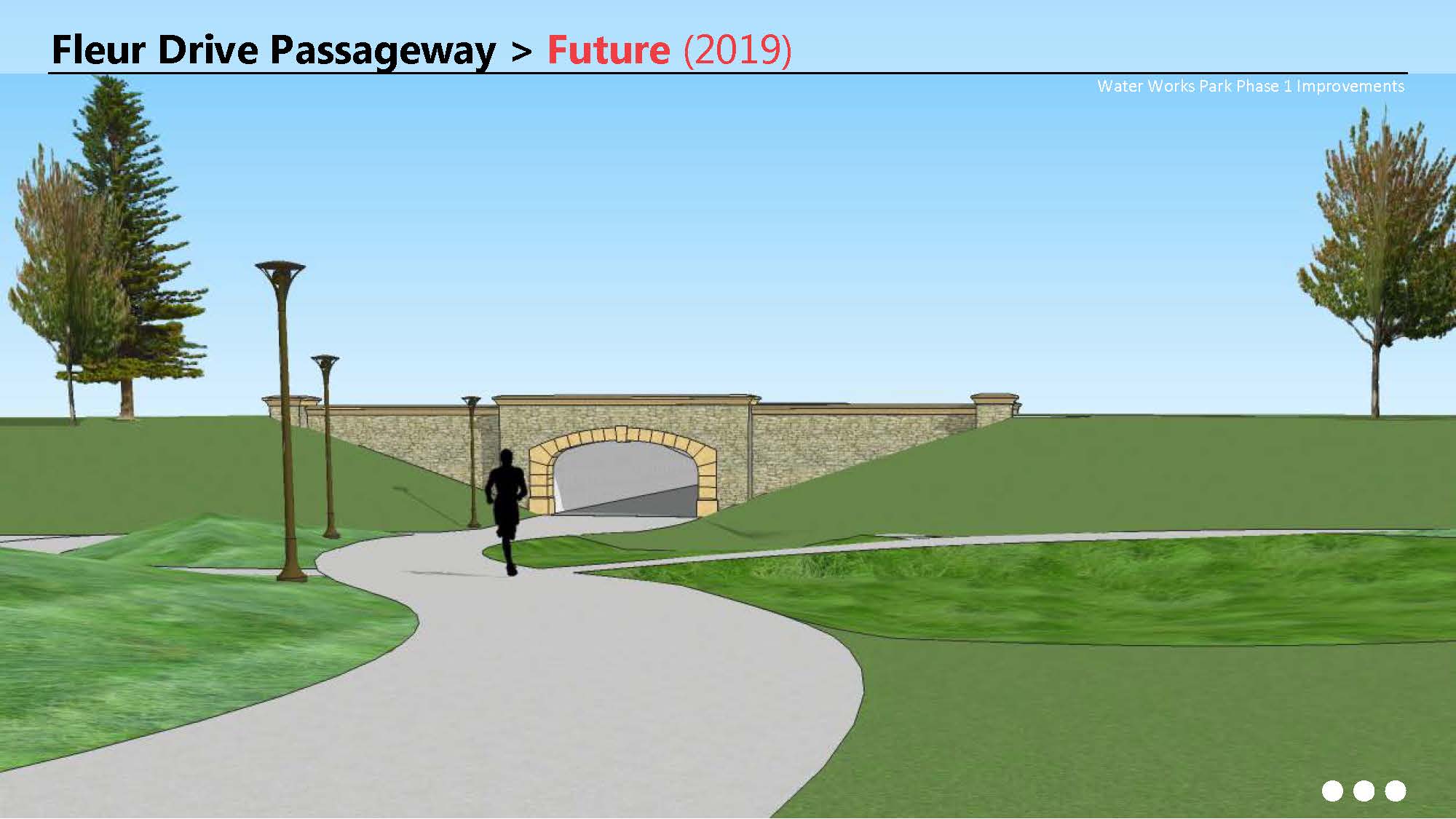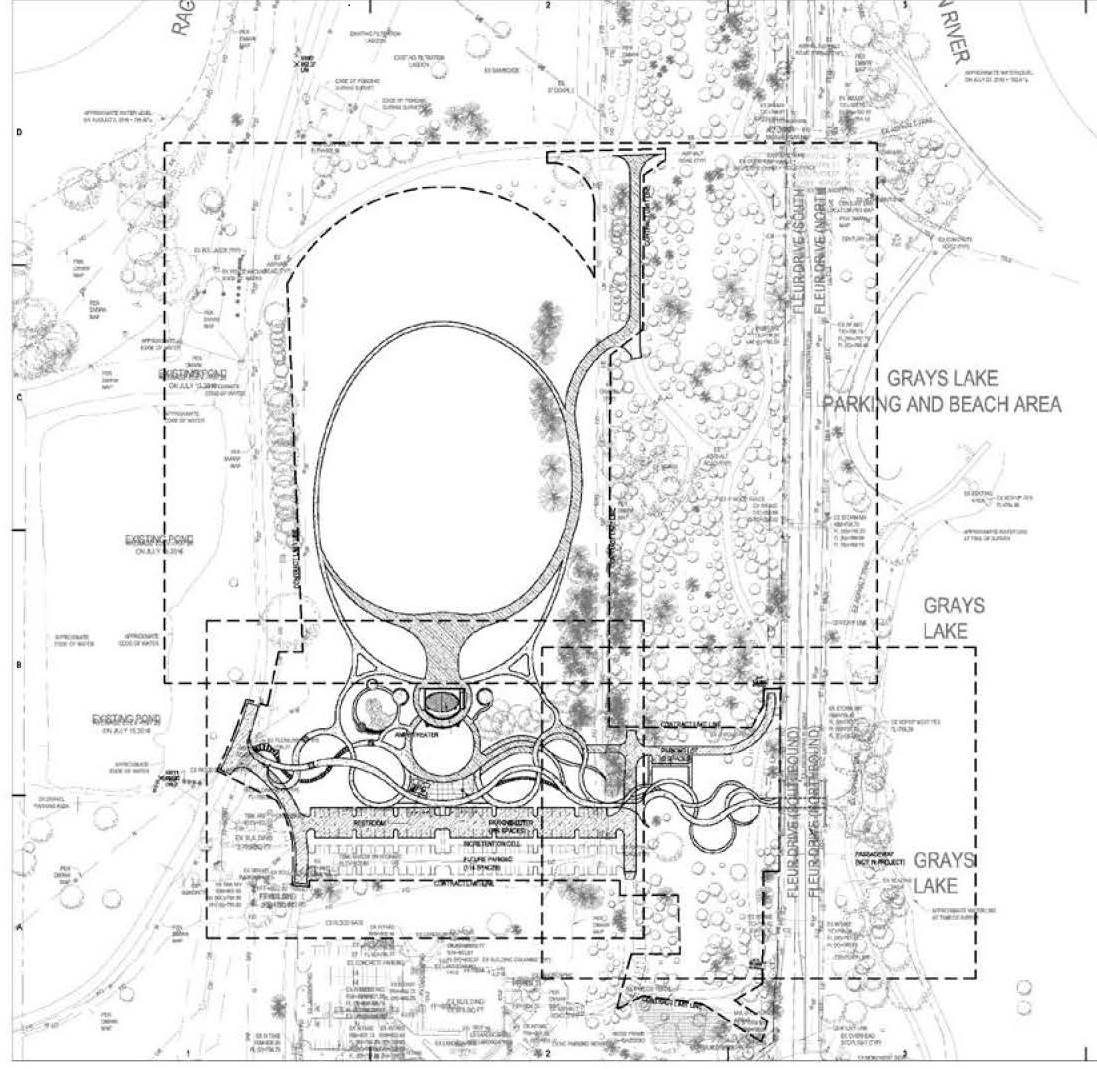Des Moines Water Works Park is More than just a Park
DSM USA’s Natural Playground
Although many of us know Des Moines Water Works Park as a natural playground for people and animals, Water Works Park’s primary mission is to serve as the first water source for Des Moines Water Works in meeting the drinking water needs of 500,000 Greater Des Moines (DSM) residents. In the 1920s and 1930s, Des Moines Water Works’ forefathers acquired land upstream of the Raccoon River to protect the water source. Water Works Park stretches from Fleur Drive, west of 63rd Street, bounded by the Raccoon River on the north edge, and George Flagg Parkway to the south. At 1,500 acres, it is one of the largest urban parks in the country and almost twice the size of New York City’s Central Park.
Following on the success of the neighboring 167-acre Gray’s Lake Park, community leaders recognized the vast opportunity Water Works Park represented to further enhance the quality of life for central Iowans and called for its thoughtful development.
To spur this development, an international “Parkitecture” competition was held in 2011, to develop a Master Plan for Water Works Park that emphasized the importance of clean water and utilized conservation, education and recreation as key principles in design development. In 2013, the Des Moines Water Works Park Foundation was formed and tasked with implementing the Master Plan for Water Works Park.
Water Works Park Master Plan
The Water Works Park Master Plan transcends any of its single uses – recreation, operation, conservation – in isolation. By combining these functions with an educational mission, the Master Plan for Water Works Park seeks to transform, through the experience of the landscape, the way we, as a culture and society, think about water.
After several years of public input, fundraising and flood resilient design, construction began in 2018, and began hosting concerts this summer. A connecting passageway to Gray’s Lake Park will also be completed by the end of the year to seamlessly and safely connect central Iowa’s two great parks.
The first phase of development is designed to both enhance current users experience and invite more people into Water Works Park by creating a destination platform with easy access to utilize park elements, information and services. It honors past users and looks toward the future by creating a launching pad for exploration of the entire park.

What’s New
The new improvements include a two-way amphitheater, two natural play areas, a multi-use marketplace for festivals and food trucks, a great lawn and smaller “celebration” lawn for recreational and entertainment activities, public art, outdoor classrooms, pathways, restrooms, and additional parking. Park visitors will continue to enjoy the Arie den Boer crabapple arboretum, pedestrian and biking trails, mountain bike trails, equestrian trails, fishing, birding. Additional enhancements (signage and visual information tools) are being added throughout the remaining 1,400 acres of “The Wild” sections of Water Works Park that allow for more self-discovery and understanding of the role Water Works Park plays in both clean water production and the many ecosystems contained within.
Owned and operated by Des Moines Water Works, Water Works Park is designated as a public park, but is not part of the Des Moines Parks and Recreation system and not supported by tax-payer dollars. Therefore, to implement the Master Plan, and to avoid using water ratepayer funds, Des Moines Water Works partnered with the Des Moines Water Works Park Foundation. The Park Foundation has raised more than $11 million of their $13 million goal from private and corporate donors to bring the plan to reality.

H2O Education
The landscape that is now Des Moines Water Works Park continues protect and provide the Des Moines metro area’s drinking water supply. Water – its abundance, its absence, and its quality – is a significant issue today across all scales: global, national, regional, and local. In just the last decade, Water Works Park has seen numerous flood events, one of the most significant droughts in U.S. history, and unprecedented water quality challenges from eroded soil, bacteria, and unregulated agricultural nutrients in both the Des Moines and Raccoon River Watersheds. As the place where the Des Moines metro area’s drinking water is harvested, Des Moines Water Works Park provides a unique opportunity to illuminate these issues and educate the region’s next generation of stewards. Water pollution affects more than drinking water; it also impacts recreation, wildlife, and business far beyond the Des Moines area. We invite all Iowans and visitors to Des Moines Water Works Park to Think Downstream in their everyday actions.
Whether it’s a morning on the lake or an evening spent riding through Greater Des Moines’ (DSM’s) 800 miles of connected recreational trails, the region has many outdoor options.